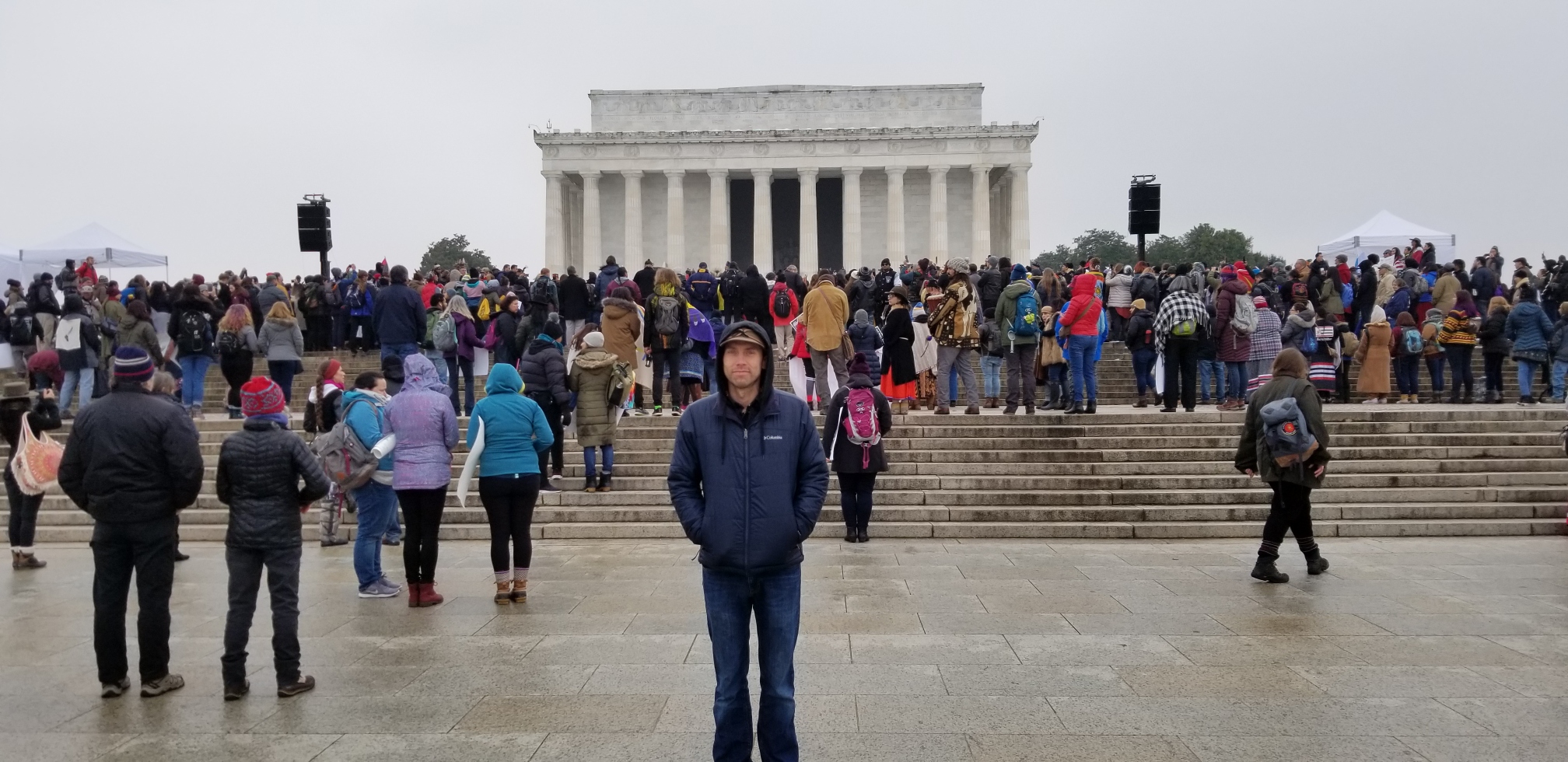The Water Protectors gathered at the White House fence, chanted and held banners, and were told to get off of the sidewalk by the police and secret service, over and over again. We took pictures and burned more sage, and some people called out to the police: "Join us! Your grandchildren need clean water, too!" They were met with the blank stares of unabashed indifference. To them we were merely a possible security threat, to be assessed, addressed, dismissed.
My small group broke off and made it to the rally on the lawn. We hung around the outskirts, and were glad we did, as Dave Archambault's voice was the one we soon heard over the surrounding speakers. DAPL Dave, as he is called, is the Chairman of the Standing Rock Sioux Tribe, and it is widely believed that he made a deal with Energy Transfer Partners and the BIA to dismantle the camps—even those on the private property of Ladonna Allard—and essentially smooth the way for the pipeline's completion.
Those who didn't know about this cheered him as his spoke his message of unity. Those who did, like Ladonna's daughter, Prairie, stood in the back and shouted their discontent. I felt the splintering, just like I had at camp, of the reality of the situation versus the perception.
The reality, I have come to understand, is that we were never going to stop a 3 billion dollar pipeline from being completed. Not in a capitalist society which places the monetary value of commodity over life in all its forms. We were there operating under the perception, the hopeful belief, that the will of millions of Americans and the thousands of people who showed up to represent them, were enough to convince the world that the sanctity of our Native Tribes— their sacred land and their drinking water—are of more value than another faulty pipeline meant to carry oil which wouldn't even be used for American consumption. Essentially, that water/life was more important than oil/money.
We were wrong. Despite the best of our efforts, the black snake has been built and will carry highly volatile fracked oil as early as next week.
But that doesn't mean that it was futile to gather on the prairie or flood the streets of Washington. All else aside, I don't know one person who returned home from the protest in North Dakota without a profound sense of purpose and empowerment, and a deeper understanding of the intersectionality of our resistance. Knowing, down to our marrow, that while we shout for the water we are also shouting for racial equality, environmental justice, and the reconfiguring of an economic system which keeps defense contractors buying islands while children starve on our own soil.
Gathering like this, making camp and forming community in the face of capitalist greed, flooding the streets of Washington in winter, are in themselves acts of profound defiance. Going back to our own lives with the seeds we took from these gatherings, and planting, cultivating, and redistributing the crop amongst ourselves— that is an act of revolution. To reconfigure a pyramid-shaped system which has forever only benefitted the top, we need people on the ground who have already chosen to live a different way, who are willing to drop everything to come together in rejection of this wildly inequitable structure, to break down the pyramid and use the stones to build well-trodden paths from house to house.
Standing Rock, and the Native Nations Rise March on DC, have proven that we have those people. That we are willing to brave the elements and our own self-doubt in order to return to a more harmonious, communal, sacred way of life, and that our numbers are growing. The truth is this: among the sleeping souls of complacency, there is an awakening of warriors for a new world who are ready to resist, and to re-imagine. At a moment's notice, ready to rise.
Jacq Williams is a freelance writer, homesteader, and activist from Southeast Michigan who spent several weeks at Sacred Stone Camp in Standing Rock in the fall and winter of 2016. She is currently working on an advocacy project for pregnant women in prison and transitional housing, called the Inmate Birth and Infancy Project.









